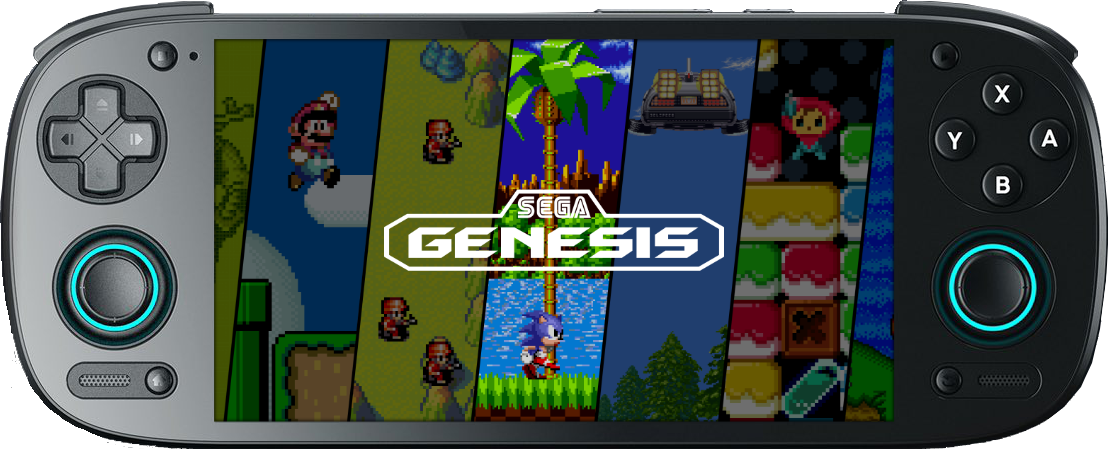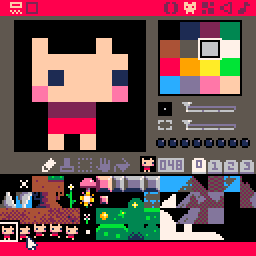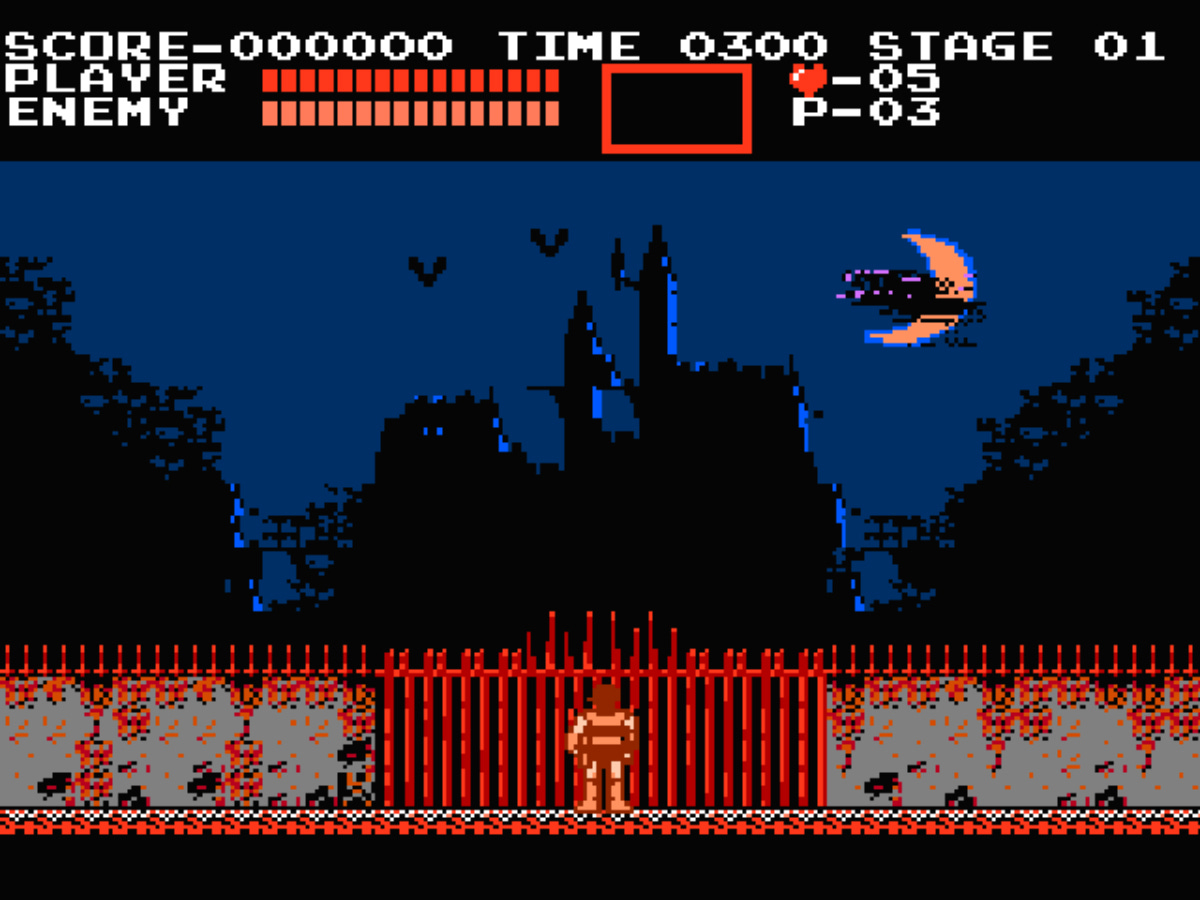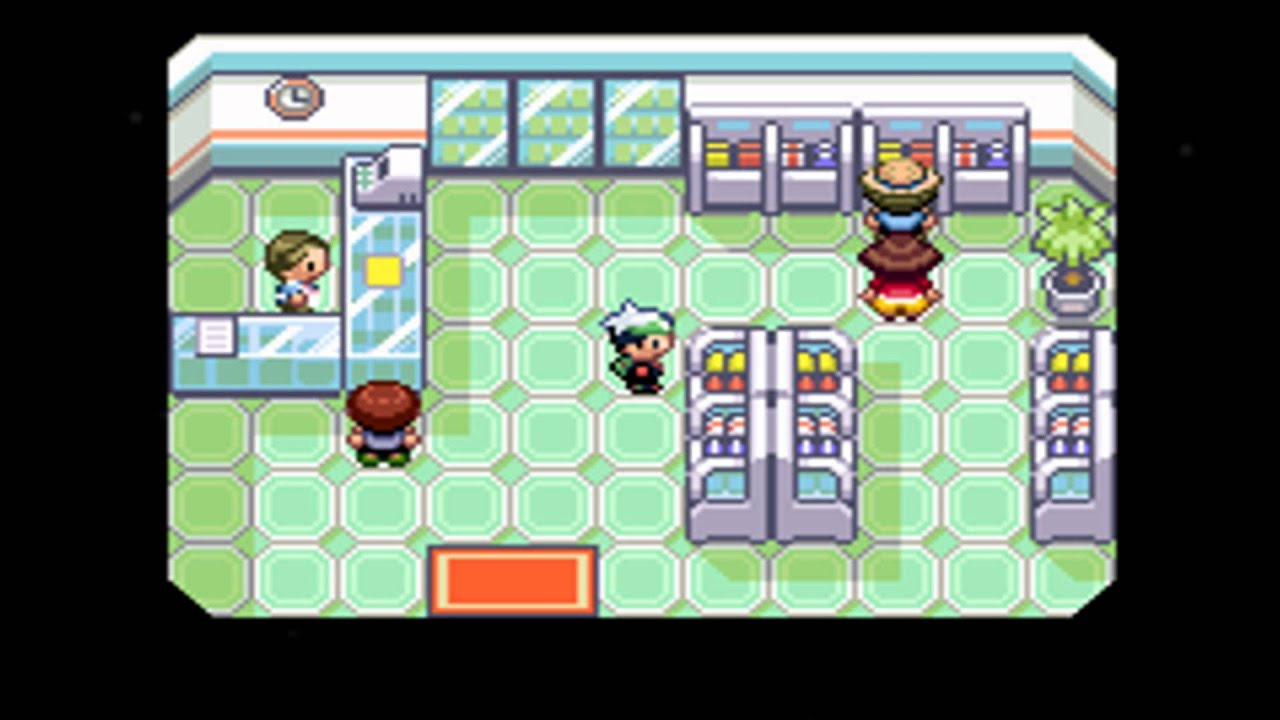In my opinion, the most approachable way to get into game development is to make small games. However, making the usual Pong or Flappy bird clone is boring.
In this post, I’ll share where I find inspiration for building interesting small games.
Playing PICO-8 Games
PICO-8 is a fantasy console, meaning a console that doesn’t actually exist. In practice it’s a virtual machine that has a bunch of artificial limitations (number of colors it can display, resolution, limited sprites, etc…).
There are two components to it. The first one is for developers where you can develop your game entirely in PICO-8 using the lua programming language. It has a built-in code editor, sprite editor, level editor and sound editor.
Since this fantasy console is so limited in what it can do, developers can easily avoid making games that are too big in scope.
The second component is the console aspect, where you can play games made in PICO-8.
While I think limitations breeds creativity, I think PICO-8’s limitations are a bit too much for me as a developer, however, I think it’s worth playing games made in it. You’ll get very inspired by how creative these small games are.
I recommend installing the P8GO app which allows you to discover PICO-8 games in a TikTok style app, allowing you to cover a lot of games quickly.
Revisiting Old Games
There are a lot of games released in the past that are easy to remake today. I recommend looking up and trying old arcade, NES and Gameboy games. A good exercise is to try remaking them while simplifying or improving the user experience since many of these games were obtuse as gaming was relatively young back then. A lot of the established quality of life features we’re used to today weren’t common.
Take an Aspect of An Existing Game and Make a Small Game About it
In the startup world, you’ll often see successful businesses emerge by taking one of the many features an establish company already has and focusing exclusively on building that one feature as their product. You can take the same approach in game dev.
Example 1
In The Legend of Zelda Link’s Awakening, there is a part of the game where you need to do a trading sequence. Meaning, exchange an item with an NPC to get another item you can exchange with another NPC until you obtain the item you need.
What if you made a game that was exclusively about trading things with NPCs to get an item the player needs?
While that might not sound particularly fun, you can always take inspiration from things outside of game dev to spice up your game concept.
For example, Rayan Trahan, a popular YouTuber, made a series called the penny challenge. He starts with a penny and needs to cross through America using only that as his starting budget. The YouTuber then proceeds to buy, sell and trade items enabling them to gradually increase their wealth so they can pay for transportation and other expenses to achieve their goal.
Now, let’s modify the game idea a bit.
What if you made a game where the player starts in a small island/town and wants to leave that town. To do so, they must buy an expensive ticket for a cruise that will enable them to leave. However, they’re broke and need to explore the town for items, and trade them with NPCs, until they make enough money to buy the ticket and leave.
Add to this, challenging aspects, like some NPCs only being interested in certain items, and you’ve got a nice little game. You can add a bit of randomness with which NPC wants what and this will make each run different allowing your game to be highly replayable.
Example 2
In the popular game franchise Pokémon, you often need to pass by a Pokémart to buy various items useful in your adventure. What if you made a game solely about managing a Pokémart?
You don’t have to use the Pokémon IP, you could replace it with your own monster catching IP. Instead of selling Pokéballs, you would sell CaptureCubes or something to that effect.
The whole game would take place within the mart. Every time a new customer enters, they can either buy from your inventory or you can buy from them. Which could be your only way of getting certain items in demand by other customers. Your goal is to stay in business since you have expenses, while keeping customers happy by having the items they need so that they keep coming to your mart.
I could go on, but I think you get the point.
Look for Inspiration Outside of Gaming
In the first example of the previous section, I mentioned taking inspiration from a YouTuber’s video series. This is an example of taking inspiration from outside of gaming and I’d argue that the truely novel ideas can be found there.
What if you made a game about managing a library? A game about being a moderator of a social media website? A game about being a lumberjack? A game about managing a retro handled company? What if you made a game based on a book, how would you adapt it so that the game is fun? The list goes on.
Conclusion
In the end, there are a lot of ways to find good small game ideas. In this post, I shared what the inspiration sources I use. If you want to learn game development, web development or game developement using web dev tools, I recommend subscribing to not miss out on future posts and tutorials.
Thanks for reading!
In the meantime, you can check out my previous content.
What I Learned Making a Duck Hunt Clone in JavaScript
I released a small web game which is a clone of the classic game Duck Hunt. (You can play it here.) Now that the game has been released for a while, I think it’s the perfect moment to reflect on what I learned building this project.













